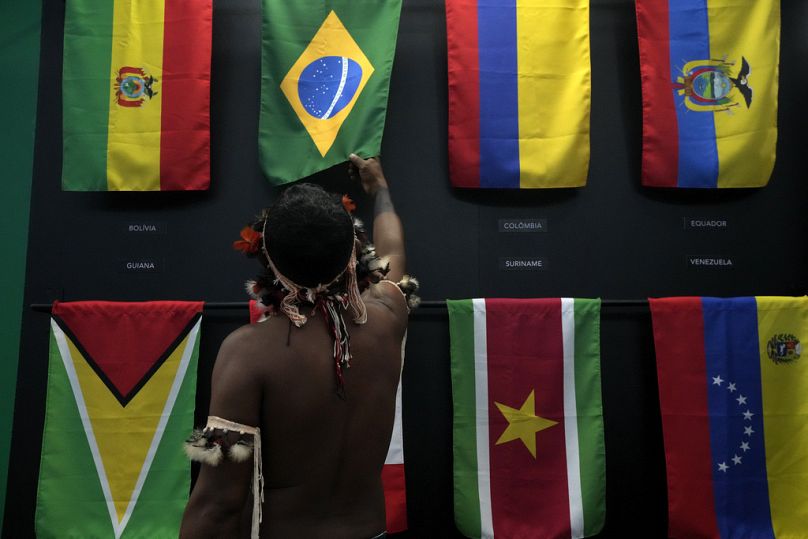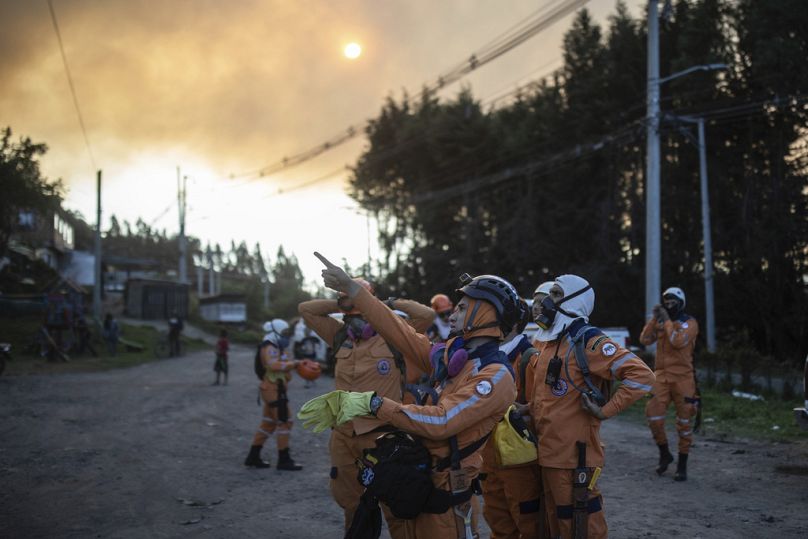It seems easier to resign ourselves to a world marked by constant climate catastrophes than to imagine a reality in which our economies and energy systems are released from the shackles of the fossil fuel industry, Colombian President Gustavo Petro writes.
At the United Nations climate conference in Dubai last year, I called the climate crisis, “the Crisis of Life,” and joined island states in calling for an equitable phase-out of coal, oil, and gas.
While the nations of the world finally agreed to “transition away from fossil fuels in energy systems”, many governments and corporations continue to ignore the scientific imperative.
The stark reality remains: the only way to avoid the worst of the climate emergency is to stop the production of new fossil fuels and negotiate a fair process to quit their use, in line with scientific recommendations.
It is very unfortunate, if not disheartening, to see the lack of commitment to these principles, towards a rapid and equitable energy transition.
And yet, it is not a far-fetched idea. Since Dubai, the US has announced a pause in the expansion of methane gas export terminals; Europe put on the table a target to reduce its emissions by 90% by 2040; and even Saudi Arabia pressed the brakes on plans to expand oil production.
These are all signs that we can plan for our carbon-free future and the transition is well underway.
The crisis we're enduring is not just about climate
As Colombia prepares to host the next UN Biodiversity Conference, and Brazil takes the lead of the G20 and UN climate negotiations in 2025 at COP30, we Amazon countries find ourselves in a unique position to lead global action for people and the planet.
Just as our forests breathe life, we must inspire world leaders to set their sights on a global phase-out of fossil fuels, with rich countries being the first to end their use.
The G20 and the upcoming international climate negotiations are the ideal stages to establish frameworks for phase-out while enabling the continued sustainable development of the Global South.
By prioritising the well-being of our people, protecting biodiversity and safeguarding life on Earth for present and future generations, we can usher in a new era of prosperity.
The climate crisis is not limited to environmental concerns; it is a clear threat to the very fabric of our societies, linked to wars, violence at our borders, wars on drugs, and anti-democratic forces.
As we wean ourselves off the poisonous drip of the oil cartels, we must also acknowledge the gross failure — and serious consequences — of the so-called “war on drugs”, another Crisis of Life for our region.
Half a century of 'war on drugs' only made matters worse
The illicit drug trade has distorted agriculture across Amazonia, increased logging, strengthened illegal mining, accelerated environmental destruction, and spread violence throughout the region.
We must end the current cycle, where poor segments of our societies — in both the Global North and Global South — are forced underground, impoverishing regions that are essentially blocked out of economic opportunity, and our youth humiliated through lack of meaningful work, dangerous migratory pathways, and baptism by violence.
Advocates of a tougher approach to drugs — a disastrous, 50-year-old policy foisted upon our region — have failed to recognise how ending prohibition and regulating drug markets is a smart, win-win solution, simultaneously addressing economic, social and climate problems.
And most worryingly, the burden of all these threats, including devastating climate impacts — from deadly fires in Chile and Colombia to long-lasting droughts in Europe and North Africa and heat waves across Latin and South America, which on 16 March created feel-like temperatures of 62ºC in Rio de Janeiro, and indeed to the tragic wars across the globe — fall disproportionately on the shoulders of the poor, jeopardising decades of progress in reducing inequalities.
We can forge a path to a better world
This is an undeniable reality we can no longer afford to ignore, symptoms of a planet facing the consequences of our collective addiction to fossil fuels and relentless deforestation, especially in the Amazon.
Furthermore, such scenarios create fertile ground for the dangerous discourse of the far-right, anti-democratic forces, which exploit this chaos in defence of the free market and deregulation as the ultimate panacea.
It seems easier to resign ourselves to a world marked by constant climate catastrophes than to imagine a reality in which our economies and energy systems are released from the shackles of the fossil fuel industry.
However, armed with knowledge, technology, popular support and a moral obligation, we already have the means to forge a path to a better world.
Colombia is now leading by example, demonstrating how economic growth and improved livelihoods follow biodiversity protection, peace, and clean energy.
This energetic transition, emanating from our living forests, creates a ripple effect, inspiring other nations to follow our example.
Together we can overcome the constraints of fossil fuel dependence and the war on drugs by embracing sustainable, inclusive and smart development.
The benefits are manifold: from addressing climate change to creating better conditions for democracy to flourish.
It is time to rise to the current circumstances. It is time for us to recognise our responsibility and act decisively.
The world is watching and the decisions we make today will define our legacy for future generations.
Dr Gustavo Petro Urrego is the 34th President of the Republic of Colombia.
At Euronews, we believe all views matter. Contact us at view@euronews.com to send pitches or submissions and be part of the conversation.













